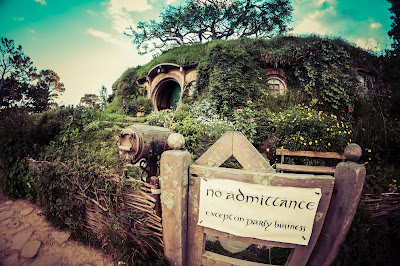Story Building (Part III): saving the Shire
In
Story Building (Part I): the foundation, I outlined the basics of a story as partly
learned from the One Year Adventure Novel, and in Story Building (Part II): coloring in silhouettes, I kickstarted you on your
way to developing a Main Character. Today, we’ll talk about what most people
would call “the plot.” I will refer to it as I was taught because that gives
more of a clear mental picture of what we’re shooting for: the story goal.
The
story goal is what your story is about. When we strip away the subplots and
action, it’s the one main thing we mention when summing up someone’s story. It’s
what we imagine happening at the end. Narnians reclaim their country from the
Telmarines (Prince Caspian); Hassan
Kadam earns a Michelin star (The Hundred
Foot Journey); Velvet Brown wins the Grand National (National Velvet); Frodo Baggins saves the Shire (The Lord of the Rings).
It
is ultimately the thing that your Main Character (MC) is working toward, even
if he himself doesn’t want it at first. Often, the MC does want the story goal
at the beginning, but if he doesn’t, something big will need to happen to
convince him of his need to achieve that goal.
For
example, Velvet Brown wants to race in the Grand National. And she does. That
hero is on the same page (no pun intended) as the audience.
However,
Frodo Baggins specifically says that he wishes the ring had never come to him.
He wishes he “had not lived to see such times.” But Frodo sees the ring’s
divisive power at the Council of Elrond, and so he knows he must destroy it.
Destroying the ring and saving his world is bigger than what he personally
wants. Ultimately, his personal goal and the overall story goal intertwine.
It’s because of what Merry says to Pippin when Pippin suggests going home to
the Shire. Merry tells his friend, if Sauron gets that ring, there won’t be a Shire.
So,
what is your story’s goal? What do we want to happen at the end of your story?
Start
mulling over some ideas. Think about the stories you like to read, or the
stories you want to see written. That’s something I’ve asked my family before:
“What’s something you’ve always wanted to read?”
Look
around for ideas. I’ve gotten a bunch just from simple observation, things that
pique my curiosity, or things I enjoy. For example, my dad has a 1940s
telephone, and I’ve often wondered what conversations transpired over that
phone. I combined that question with an attempt of simulating the storytelling
styles of old movies that take place in one room like Arsenic and Old Lace or (though I’ve yet to see it) Alfred
Hitchcock’s Rear Window. That
combination resulted in Mute, my
latest short story—a 1990s murder mystery from the point of view of a payphone.
My
friend once told me about war horses that were trained to lie down so that
soldiers could shoot from behind them, and that started the excitement for my
next planned novel, Heart: Friend Through
Fire, set in WWI.
Austin
Kleon, author of Steal Like an Artist, says to make the art you want to see. Write the
stories you want to read.
True,
what you write will not turn out how you originally imagined. In some ways, it
will probably be worse, but never starting means that your idea will never have
a chance to even be real. And in some ways, it will be better than you
originally planned. So, give it a try. I’ve written some awful stuff. I still
write awful stuff. I’ve written good stuff. But at least I have stuff. I can
always modify it.
Whatever
you choose to make your story about, make sure that we as the audience want it
too. Make it hold weight for us. Make us care about it through making it worth
something, by making it have a cost, not only to the MC, but also to us.
Next
week, we’ll dig into that value holder: sacrifice.
That
wraps it up for today. Comment below and share what your favorite stories are
and why, ask questions, or share your own story idea. And if you don’t have
one, comment anyway and I’ll help you get started. :) You have a story worth
telling.
…
“The only
rule I have found to have any validity in writing is not to bore yourself.” –
John Mortimer
…




Comments
Post a Comment